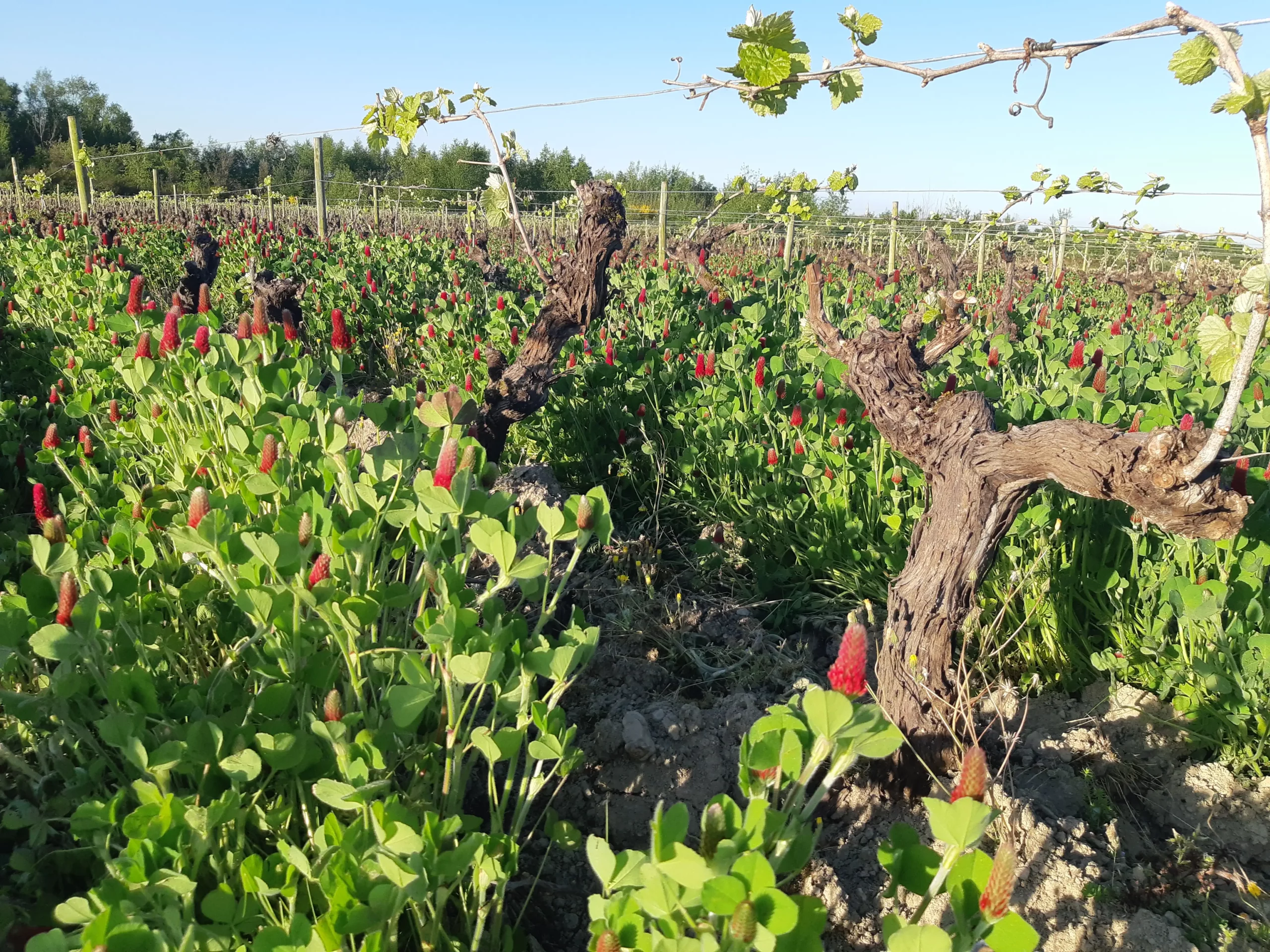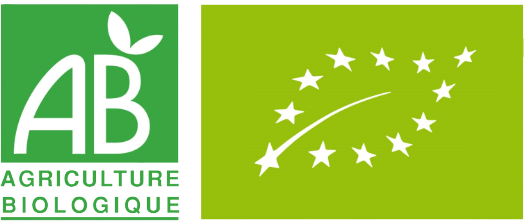Ecological pillar
Drawing inspiration from the way ecosystems function
to preserve the environment and resources
Living soil
With common sense and pragmatism, we reason our viticulture from the soil to the plant. This means making the greatest possible effort to maintain a living soil. One cm3 of soil contains several billion living organisms. Mushrooms, bacteria, earthworms and insects all contribute to the proper functioning of our soil, which we regard as a larder. We respect it as such by never ploughing it, by covering our vine rows with plant cover which is destroyed on the surface. They structure and aerate the soil, provide organic matter (food for the inhabitants) and protect it from the wind, sun and heat.
Finally, we regularly add calcareous marl to maintain a good chemical balance.
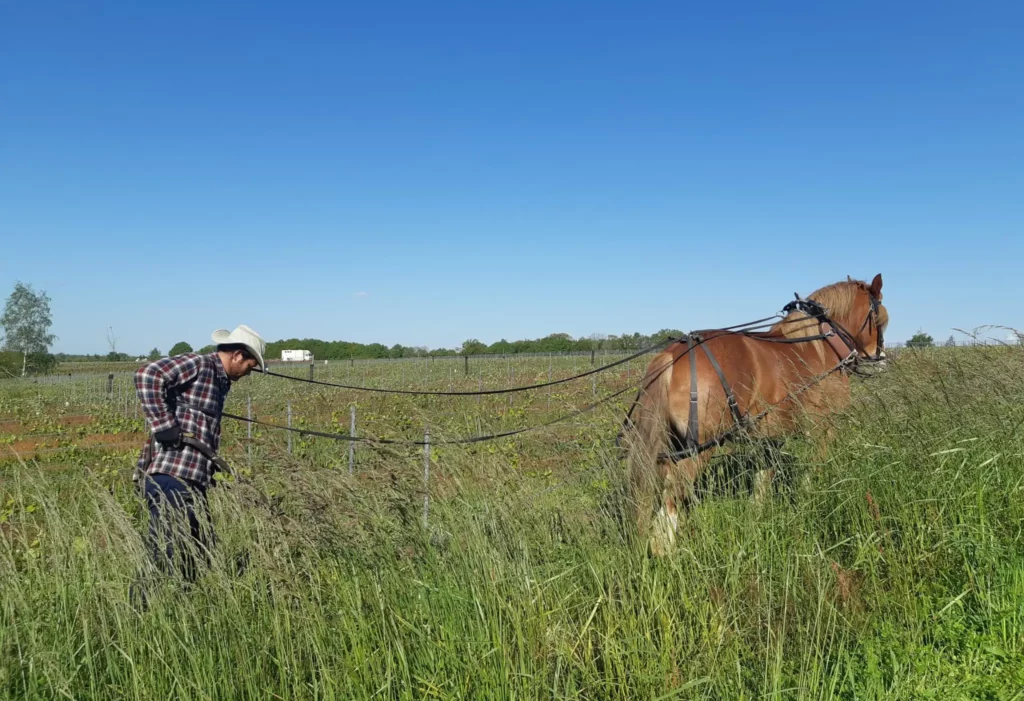
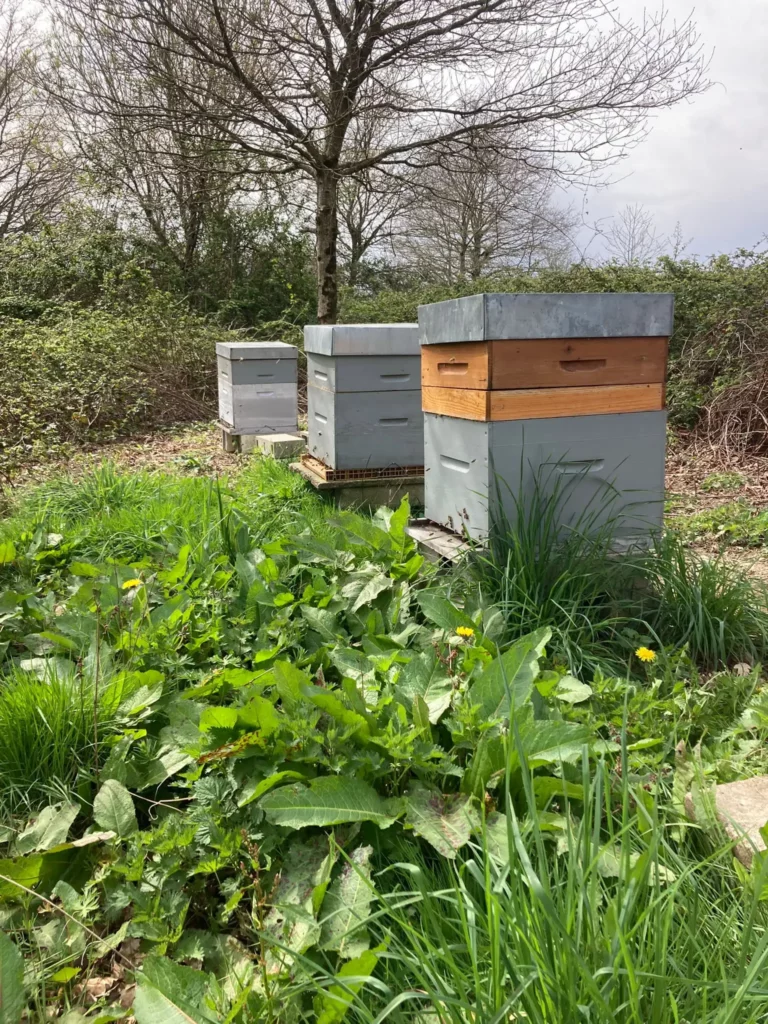
Encouraging biodiversity
Our plant cover is rich in melliferous plants: red clover, sweet clover, buckwheat and broad bean attract insects and, by extension, birds. Similarly, small mammals and reptiles populate our vines thanks to the food available and the habitat encouraged and preserved by our practices. Beehives set up on the edge of our plots also contribute to the vigour of the environment.
This biodiversity is also stimulated by the many trees on the estate. From the practice of agroforestry to the agro-ecological park encompassing woodland, copses, meadow strips, ponds and wild open spaces, trees are at the centre of our thinking and are our major asset for regulating the environment and absorbing climatic hazards as effectively as possible.
Our aim in promoting biodiversity is to maintain a healthy, balanced and resilient growing environment. Our vines sometimes face competition, but this strengthens their defences and their ability to adapt. We seek balance for our grapes, so that they are perfectly ripe at harvest time and reflect the terroir and the vintage.
Preserving water resources
The climatic context encourages us to consider water as an essential element of our agricultural system. Too much rain all at once, not enough in winter, summer drought, wet winter, etc. The water situation is far from linear.
We collect the rainwater that falls on our winery to carry out our treatments during the growing season.
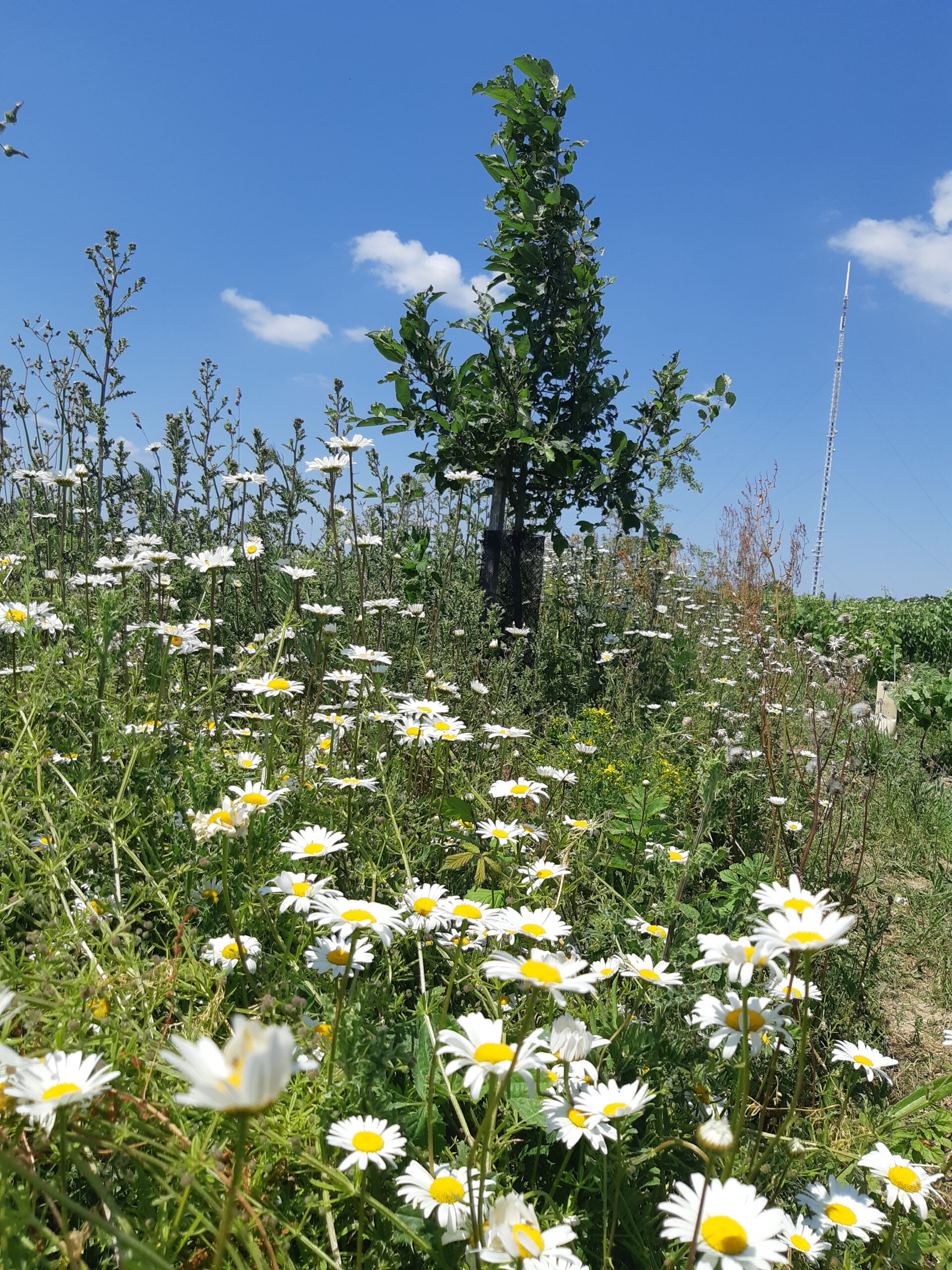
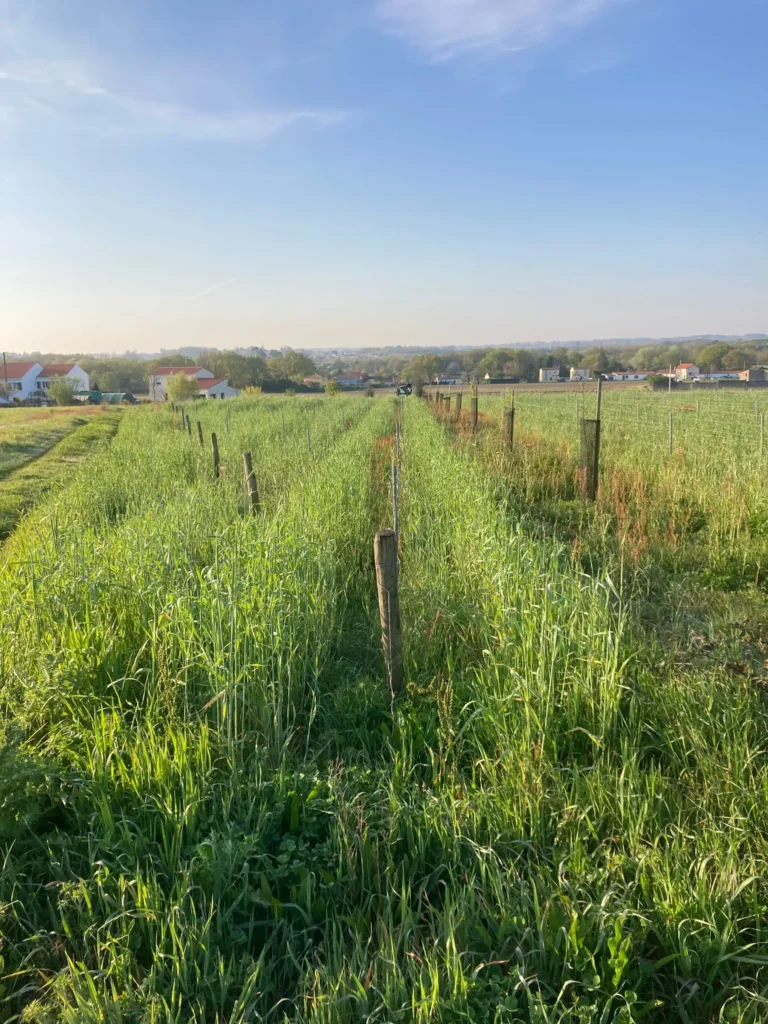
Our soils, which are covered and protected from intrusive mechanical work, are capable of absorbing water as it falls and storing it so that it can be released over time, as our vines need it.
Trees are also an invaluable tool for managing water resources. They structure the soil, allowing infiltration and capillary rise according to the needs of the crop.
Energy sobriety
Our agro-ecological practices enable us to store 240% of our carbon emissions for the production of our grapes in the soil. However, we are constantly thinking about how to optimise our energy consumption. Our agricultural work is rational and economical, in terms of the number of operations and the tools we use. Our tractors consume very little fuel, and we use horse-drawn vehicles to reduce our consumption even further.
Finally, elbow grease is a remarkable way of reducing consumption! Pickaxes, hoes, spades, rakes and backpack sprayers are our everyday tools.
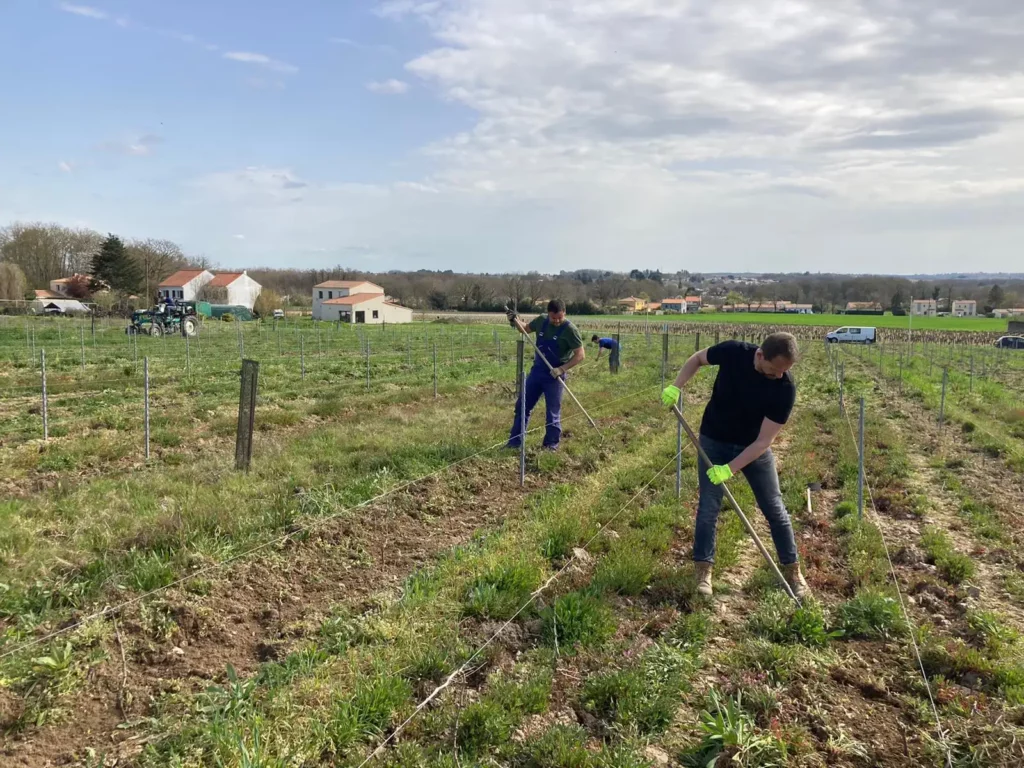
Economical pillar
Reclaiming an inclusive economy serving the common good
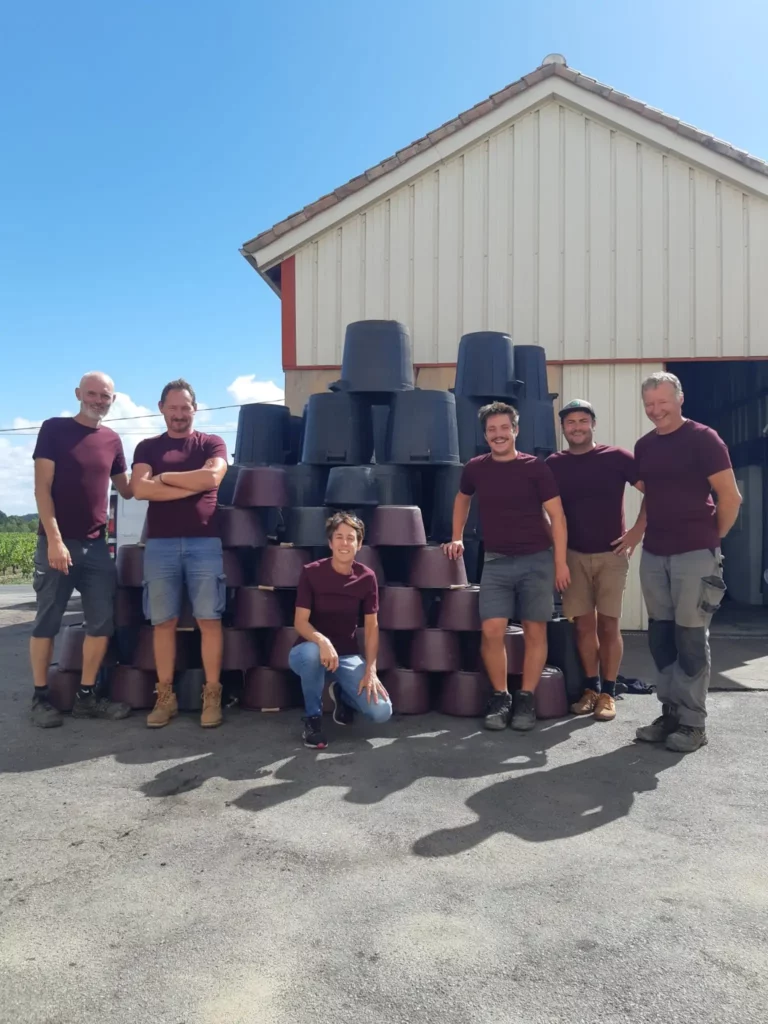
Local employment
Our approach is global and sustainable. We give priority to human and artisanal work, which shapes the landscape and maintains our estate. We welcome many students on work placements, who are always fully involved and help us to move forward and think things through. Our team is close-knit and close-knit, always ready to meet the challenges of day-to-day work and long-term projects.
A sustainable estate
All our practices are part of a sustainable approach. And on our scale, sustainability has to be economic. Whether it’s a question of developing our business by offering high-quality products, or paying our employees as well as we can, but also of taking pleasure in giving our time and energy to tending the vines and making our wines, our aim is to build a viable estate, i.e. one that has what it takes to last.
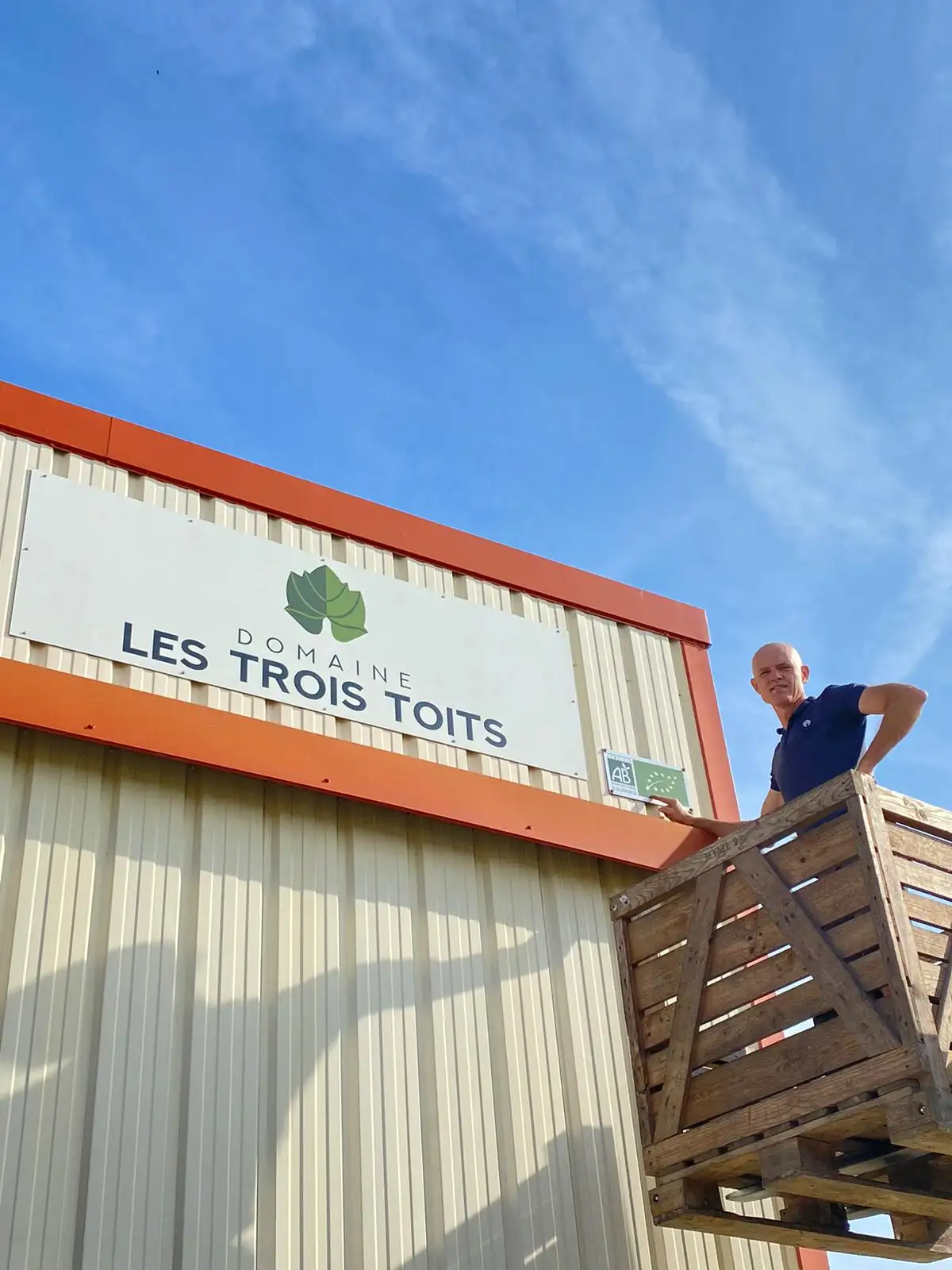
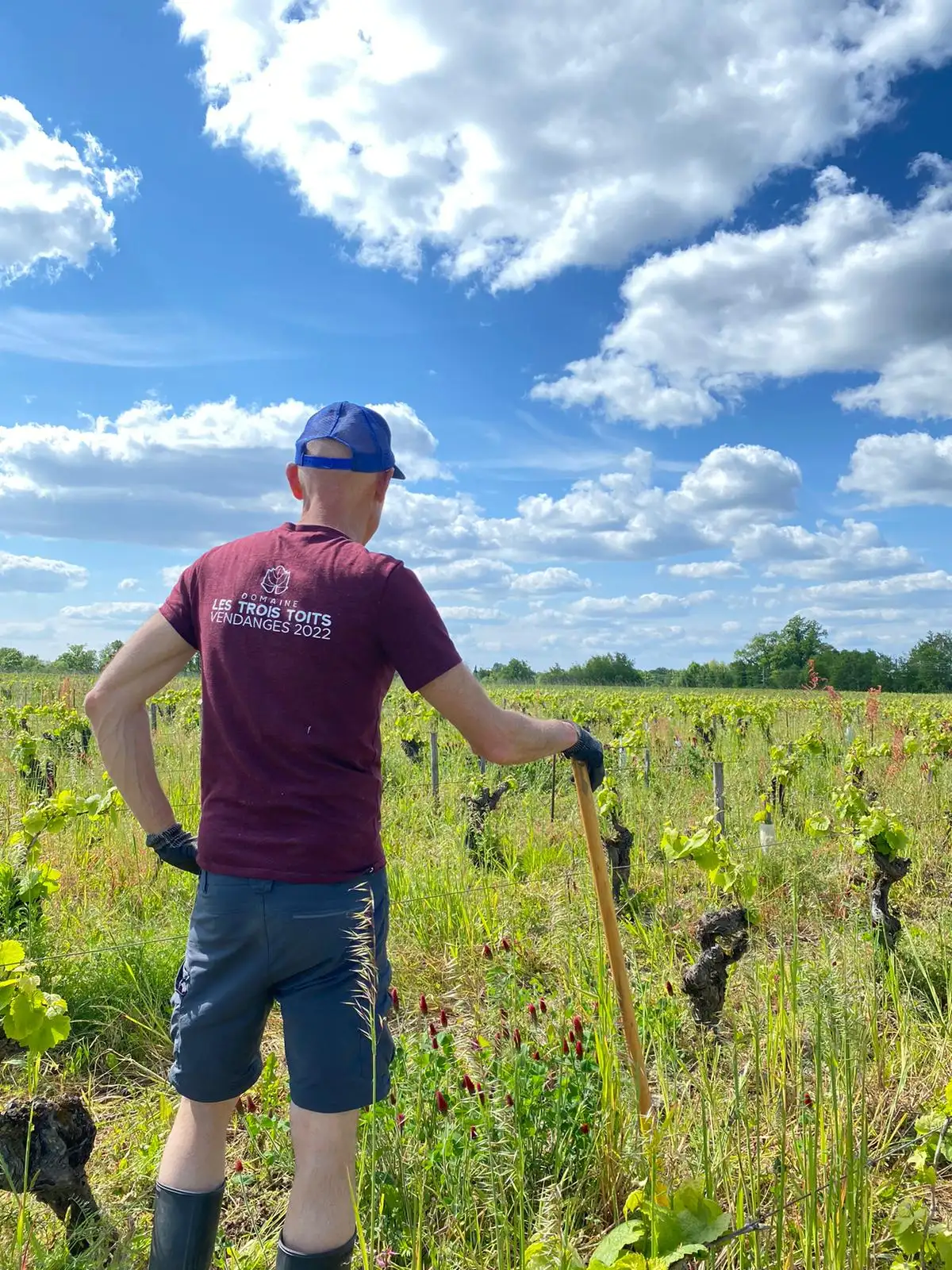
Social pillar
Cultivating solidarity and social responsibility through an ethical and supportive approach
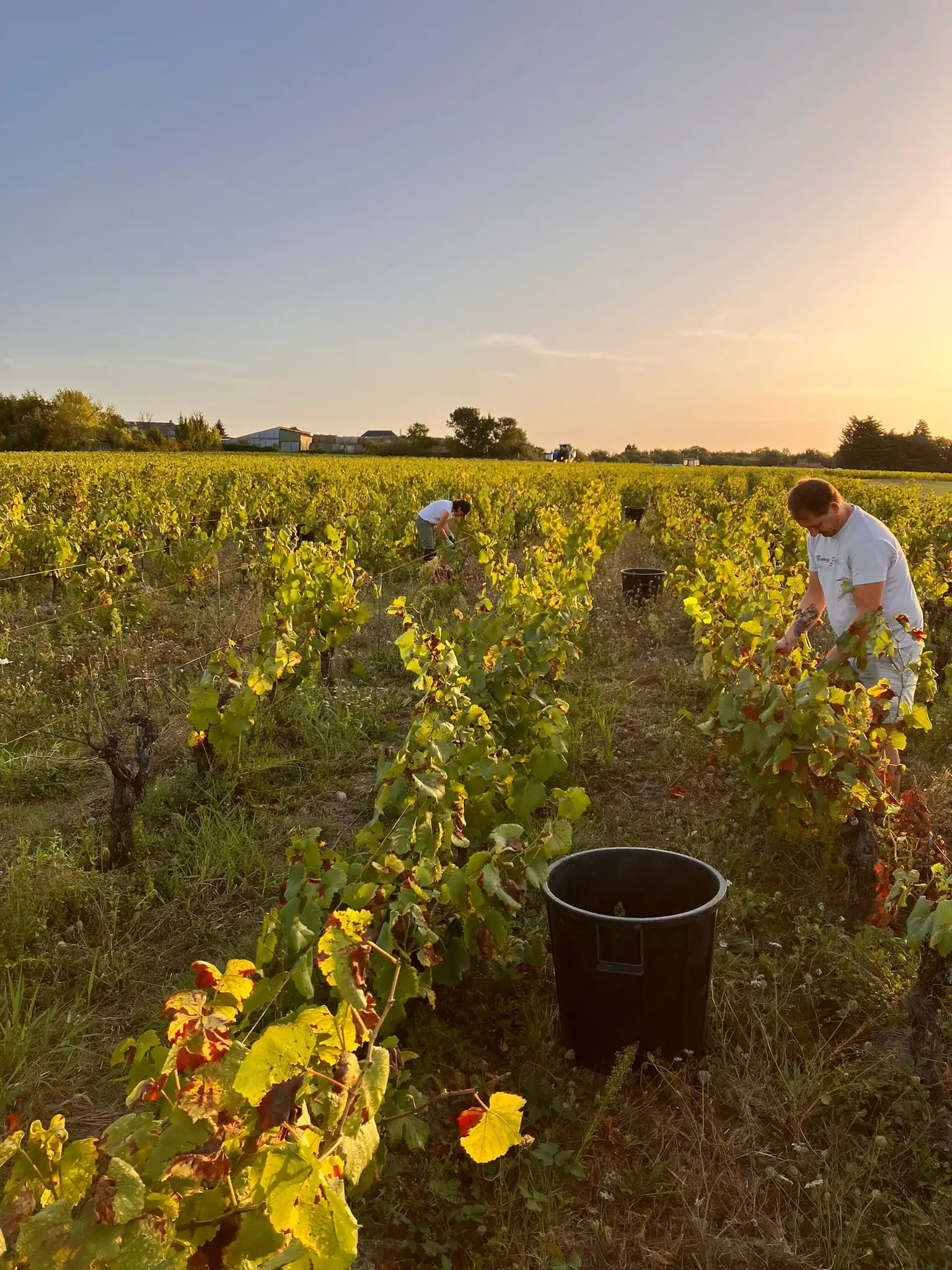
Small-scale farming on a human scale
Our practices are far from revolutionary, but they sometimes make our neighbours, walkers and professionals sit up and take notice. Yet we are guided by good farming sense, based on observation, consultation, listening and exchange. We take part in regular training courses, focus groups and technical bodies. We plan our plots so that they make sense: orientation, grape varieties, pruning.
Sharing skills and knowledge across the board
The whole of the estate’s team is involved on a daily basis in the issues surrounding our committed viticulture. Weed and plant cover management, the plants used in our sprays, gentle pruning, the maintenance of complants, etc. Every action must make sense to everyone. Decisions are discussed and taken with the help of everyone’s input and skills.
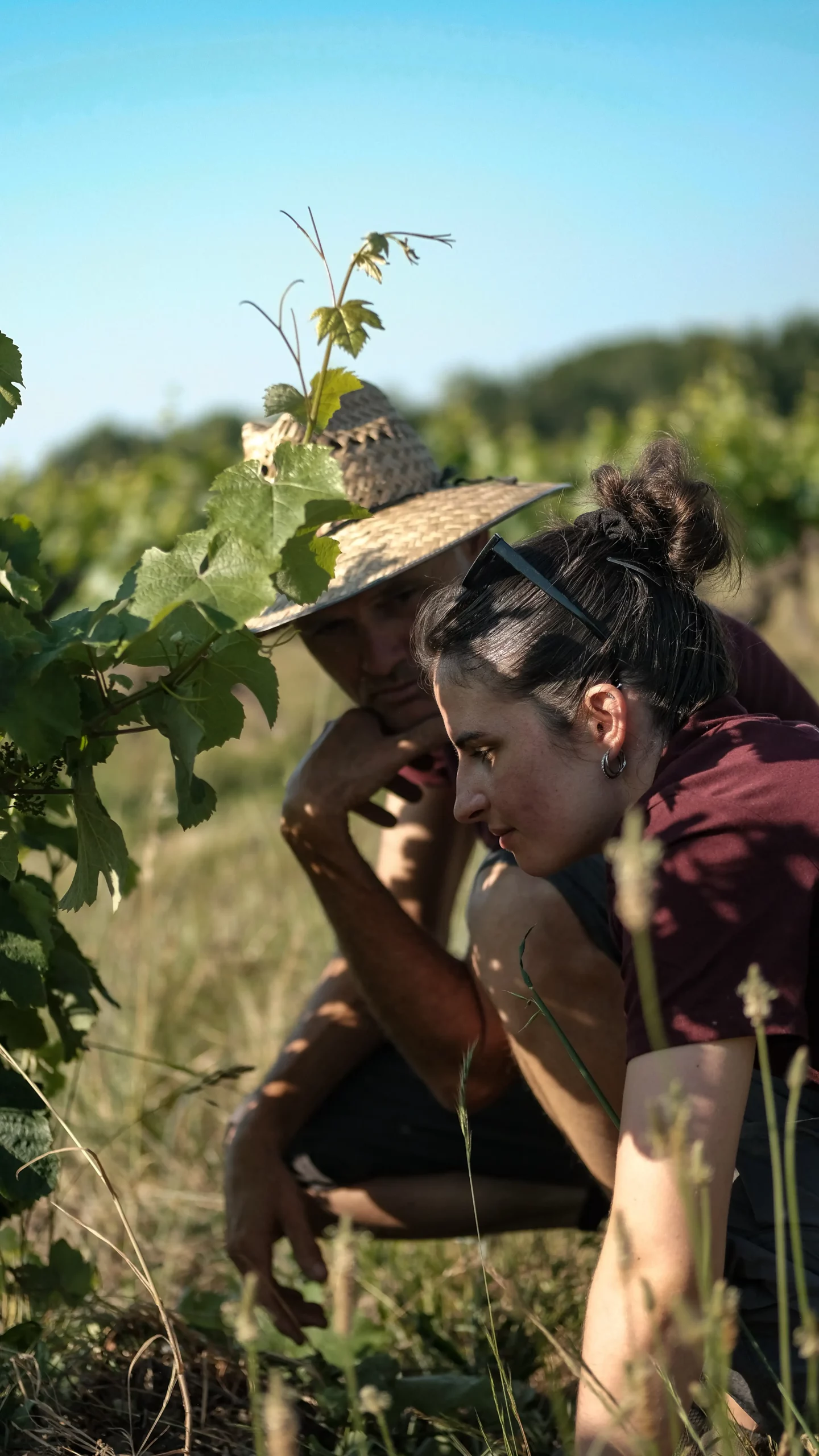
Follow us
on Instagram !
Every time we meet you, we share some news about the estate and its development. On a weekly basis, we communicate on social networks, aiming to deliver content that allows readers to understand a little more about the story behind each bottle of wine.
Subscribe to our newsletter !
In addition, we create a newsletter, which we publish 5 times a year, to share our news with those of you who prefer to sit back and read.
Enjoy your reading, stay tuned and keep in touch.

